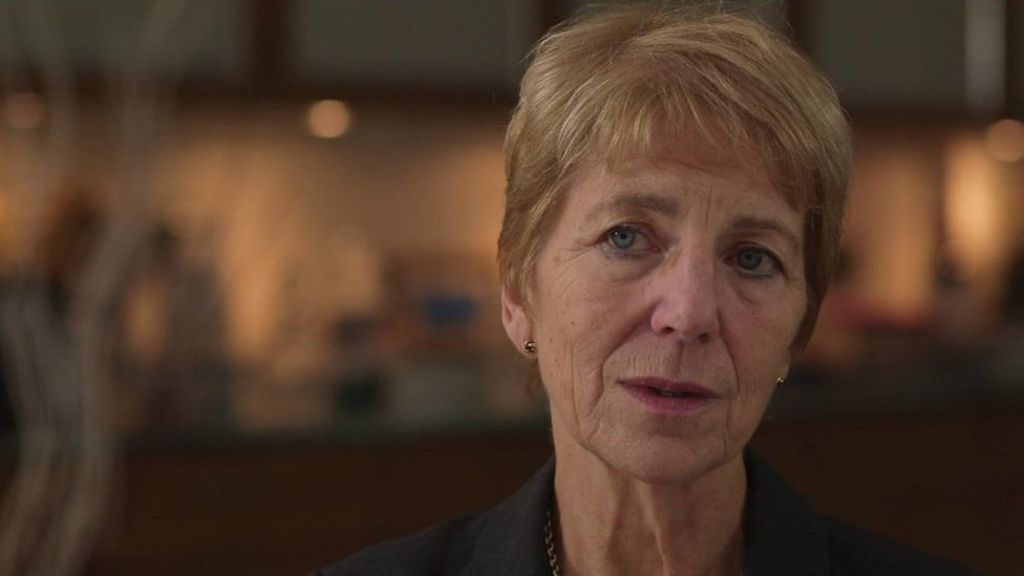High Court finds ‘serious irregularity’ in decision to strike off Waney Squier

According to a BBC Panorama investigation aired earlier in the year, there were more than 100 cases of babies with shaken baby symptoms recorded last year. Pic: BBC
The High Court yesterday found ‘serious irregularity’ on the part of the medical disciplinary tribunal that banned a leading critic of shaken baby syndrome from practicing medicine. Dr Waney Squier, who was struck off in March after having been found to have lied and misled the courts, has been cleared of dishonesty and had her licence reinstated.
The world-renowned neuropathologist is reckoned to have appeared in some 200 cases on both sides of the Atlantic supporting parents where they have been accused of killing their children and challenging the mainstream thinking on shaken baby syndrome. The accepted view is that a combination of symptoms (the so-called triad) – swelling of the brain, bleeding between the skull and brain, and bleeding in the retina – indicates trauma through shaking. However the science behind the syndrome is increasingly being challenged and, for example, only last month a Swedish study concluded that the evidence supporting the theory was ‘weak’.
More than 250 doctors, academics, and lawyers had urged the General Medical Council (GMC) to rethink its decision to strike off Squier. In an open letter to the British Medical Journal published last month, the signatories, led by the paediatric pathologist Irene Scheimberg, argued that ‘the GMC’s decision was depriving patients of Squier’s “invaluable contribution” to developmental neuropathology’.
Although Squier has been reinstated and cleared of dishonesty, the High Court said that the Medical Practitioners Tribunal, the GMC’s disciplinary arm, was entitled to find that Squier had ‘failed to work within the limits of her competence and to be objective and unbiased’. The doctor will not be allowed to give any expert evidence in court for three years.
Modern inquisition
Supporters of Squier have argued that she had been ‘scapegoated’ for daring to take on the medical establishment and that the GMC had acted like ‘a modern inquisition’.
In his judgment yesterday, Mr Justice Mitting was highly critical of the ‘flawed proceedings’ of a tribunal that comprised a retired RAF wing commander as chair, a retired senior policeman and a retired geriatric psychiatrist. In particular, he found that its main finding that Squier had committed perjury was ‘unjust because of a serious irregularity’. The doctor had declined to answer a question after it was explained to her that her answer could potentially be used in separate criminal or disciplinary proceedings and the fact that she didn’t answer the question could not be held against her. ‘Having exercised that right, she was entitled to assume that she would not be found to have lied – committed an act of perjury – as a result of doing so,’ the judge said; adding that it was ‘a serious irregularity’ and produced ‘an unjust conclusion on a critical question’.
Mr Justice Mitting noted that the tribunal was ‘less favourably impressed’ by the evidence of those supporting Squier. In May Michael Birnbaum QC, one of those who gave evidence on her behalf, wrote that in his 43 years of practice at the Bar, he had ‘rarely read a judgment of an English Court or tribunal so deeply flawed and unfair as this’.
In a letter to the tribunal chair judge David Pearl, Dr Jennian Geddes, the only one of five medical experts to give evidence for Squier not criticized by the panel, described its dismissive treatment of the other witnesses as ‘deplorable’. They were ‘distinguished experts in their respective fields who have been gratuitously defamed’, she wrote.
Mitting ruled a number of the tribunal’s conclusions about the witnesses were ‘untenable’ with the ‘most egregious example’ being their finding that Birnbaum (in the tribunal’s words) ‘lacked some credibility’. ‘There was no foundation for such a statement,’ the judge said; adding that it was ‘the first of a number of unsustainable findings of greater significance’.
As a concluding observation, Mitting noted that there was nothing in the GMC’s rules to prevent a lawyer with judicial experience from being appointed to chair such a complex case. ‘It would, in hindsight, have been better if that power had been exercised in this case,’ he added.
A spokeswoman for the GMC said the court had ‘confirmed that this case was not about scientific debate and the rights and wrongs of the scientific evidence, but the manner in which Dr Squier gave evidence’. ‘The ruling makes clear that she acted irresponsibly in her role as an expert witness on several occasions, acted beyond her expertise and lacked objectivity, and sought to cherry-pick research which it was clear did not support her opinions,’ she said.







